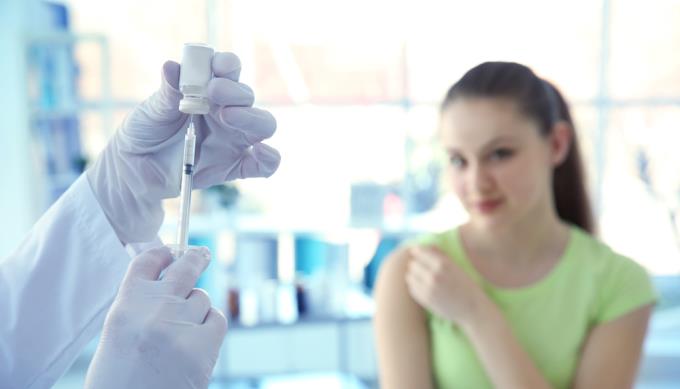Pathological jaundice in pregnancy represents many different health conditions that cannot be overlooked or overlooked.
Do you ever take nausea for granted just because you think it is a common morning sickness ? Think you might get anemia during pregnancy , when your skin starts to change color? However, skin discoloration, loss of appetite and nausea are typical symptoms of pathological jaundice.
Pregnancy is an extremely important period for both mother and baby. You must pay attention to any health problems you face while pregnant as they will certainly have a direct or indirect effect on the little angel. One of the conditions that needs attention during pregnancy is pathological jaundice.
Causes of pathological jaundice
Jaundice is synonymous with impaired liver function and can be the result of a number of other causes including:
Liver Cancer
Malaria causes inflammation and jaundice
Liver disorders such as alcoholic liver disease, non-alcoholic fatty liver, acute fatty liver, primary biliary cirrhosis, and viral hepatitis
Using paracetamol overdose can adversely affect liver function and interfere with the ability to filter waste, causing jaundice.
Gallbladder stones or the presence of stones in the common bile ducts cause an accumulation of bilirubin, leading to jaundice
Sickle cell anemia, an inherited condition that causes the breakdown of red blood cells. It also results in the body inadvertently storing too much bilirubin
HELLP syndrome , a life-threatening condition that often occurs later in pregnancy or even after childbirth
Secondary causes such as obesity , certain autoimmune diseases, birth defects and high cholesterol levels are also likely to lead to pathological jaundice.
Symptoms of pathological jaundice during pregnancy

Here is a list of the most common symptoms of jaundice:
High fever
Weakness
Itchy skin
Headache
Light colored stools
Dark urine
Nausea and vomiting
Not good eating
Swelling of the area around the liver
Eyes turn yellow
Swelling of the legs , ankles , and feet.
Diagnosis of jaundice
After the physical exam, you can state your symptoms or any prescription medications you're taking. Doctors usually diagnose jaundice with the help of the following steps:
Blood tests to check if you have malaria or hepatitis
To check for internal organ problems, your doctor may order an ultrasound
Conduct a urine test to check for urobilinogen. The breakdown of bilirubin produces urobilinogen. Higher or lower levels of this compound can help the doctor confirm jaundice
Sometimes, you will be given a liver function test to check for alcoholic liver disease, cirrhosis, hepatitis or other health conditions that can potentially affect the liver.
In severe cases, your doctor may also recommend a liver biopsy to confirm cirrhosis or liver cancer.
Treatment of jaundice in pregnant women
Reporting your blood test (and CT scan results if needed) will help the doctor confirm the jaundice and find out the cause of the disease. Jaundice is often a sign of an underlying problem. Therefore, the doctor will treat the underlying cause of the disease, thereby ensuring the health of both mother and child.
The cause of jaundice, like hepatitis A, will come and go on its own, which usually doesn't require treatment
If the jaundice is caused by malaria, your doctor will recommend the right treatment for you
In the case of jaundice during pregnancy that is the result of cirrhosis, severe hepatitis or liver cancer, the pregnant mother may need special medical attention.
Risk if left untreated
There are several consequences that can affect pregnant women if the jaundice is not treated, including:
Preterm birth
Itching can become intense and debilitating
Local clotting, vitamin K is needed to improve the situation.
In addition, your baby will also experience negative effects, such as:
Pregnancy failure
Stillbirth
The fetus swallows feces
Syndrome of amniotic fluid inhalation .
Prevent pathological jaundice
There are many causes of jaundice, so it can be difficult to come up with specific precautions. However, most experts advise pregnant women to take the following steps to prevent jaundice during pregnancy:
Healthy eating mode
Eating healthy and hygienic food throughout your pregnancy will help prevent jaundice as well as other health problems.
Weight is stable
During pregnancy, pregnant mothers should maintain a healthy weight and regulate blood cholesterol levels by controlling the amount of fat absorbed.
Active lifestyle
Consult with your doctor about safe forms of movement during pregnancy. Regular exercise will assist the body in supplying the appropriate blood and oxygen to various organs, including the liver.
Vaccination before pregnancy

To avoid diseases of infection or hepatitis. Pregnant mothers should listen to the doctor's advice about the vaccination plan.
Limit your medication intake
During pregnancy, pregnant mothers should limit taking drugs or compounds that can be toxic to the liver. Avoid overusing over-the-counter (OTC) drugs. Consult your doctor before taking any medicine during pregnancy.
Be careful when traveling
Avoid traveling to areas with illnesses like malaria. In case of force majeure, pregnant mothers should use preventive measures.
Don't worry about jaundice during pregnancy. If the condition is found early, neither you nor your baby will affect your health. Also, go to the hospital as soon as you notice symptoms appear to treat and ensure a quick recovery.
You may be interested in the topic:
Hip pain during pregnancy: Causes and treatment
Pregnant women have edema: What is the cause behind?
Alcoholic cirrhosis: It's not for anyone













